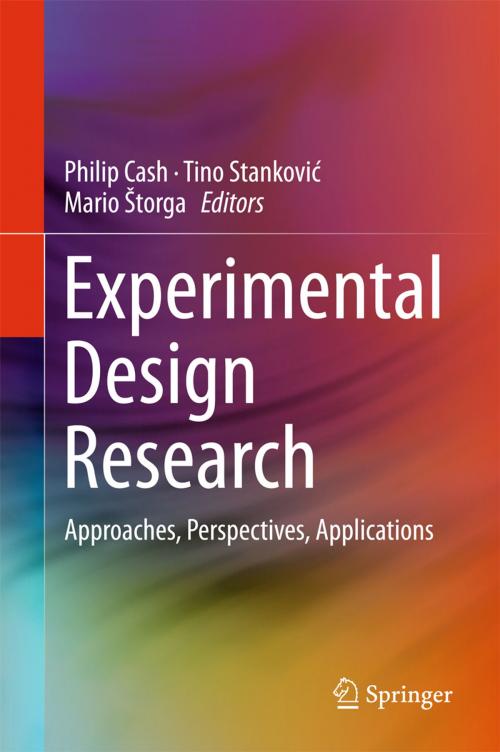Experimental Design Research
Approaches, Perspectives, Applications
Nonfiction, Science & Nature, Technology, Industrial Design, Computers, Application Software, CAD/CAM| Author: | ISBN: | 9783319337814 | |
| Publisher: | Springer International Publishing | Publication: | May 17, 2016 |
| Imprint: | Springer | Language: | English |
| Author: | |
| ISBN: | 9783319337814 |
| Publisher: | Springer International Publishing |
| Publication: | May 17, 2016 |
| Imprint: | Springer |
| Language: | English |
This book presents a new, multidisciplinary perspective on and paradigm for integrative experimental design research. It addresses various perspectives on methods, analysis and overall research approach, and how they can be synthesized to advance understanding of design. It explores the foundations of experimental approaches and their utility in this domain, and brings together analytical approaches to promote an integrated understanding. The book also investigates where these approaches lead to and how they link design research more fully with other disciplines (e.g. psychology, cognition, sociology, computer science, management).
Above all, the book emphasizes the integrative nature of design research in terms of the methods, theories, and units of study—from the individual to the organizational level. Although this approach offers many advantages, it has inherently led to a situation in current research practice where methods are diverging and integration between individual, team and organizational understanding is becoming increasingly tenuous, calling for a multidisciplinary and transdiscipinary perspective. Experimental design research thus offers a powerful tool and platform for resolving these challenges.
Providing an invaluable resource for the design research community, this book paves the way for the next generation of researchers in the field by bridging methods and methodology. As such, it will especially benefit postgraduate students and researchers in design research, as well as engineering designers.
This book presents a new, multidisciplinary perspective on and paradigm for integrative experimental design research. It addresses various perspectives on methods, analysis and overall research approach, and how they can be synthesized to advance understanding of design. It explores the foundations of experimental approaches and their utility in this domain, and brings together analytical approaches to promote an integrated understanding. The book also investigates where these approaches lead to and how they link design research more fully with other disciplines (e.g. psychology, cognition, sociology, computer science, management).
Above all, the book emphasizes the integrative nature of design research in terms of the methods, theories, and units of study—from the individual to the organizational level. Although this approach offers many advantages, it has inherently led to a situation in current research practice where methods are diverging and integration between individual, team and organizational understanding is becoming increasingly tenuous, calling for a multidisciplinary and transdiscipinary perspective. Experimental design research thus offers a powerful tool and platform for resolving these challenges.
Providing an invaluable resource for the design research community, this book paves the way for the next generation of researchers in the field by bridging methods and methodology. As such, it will especially benefit postgraduate students and researchers in design research, as well as engineering designers.















